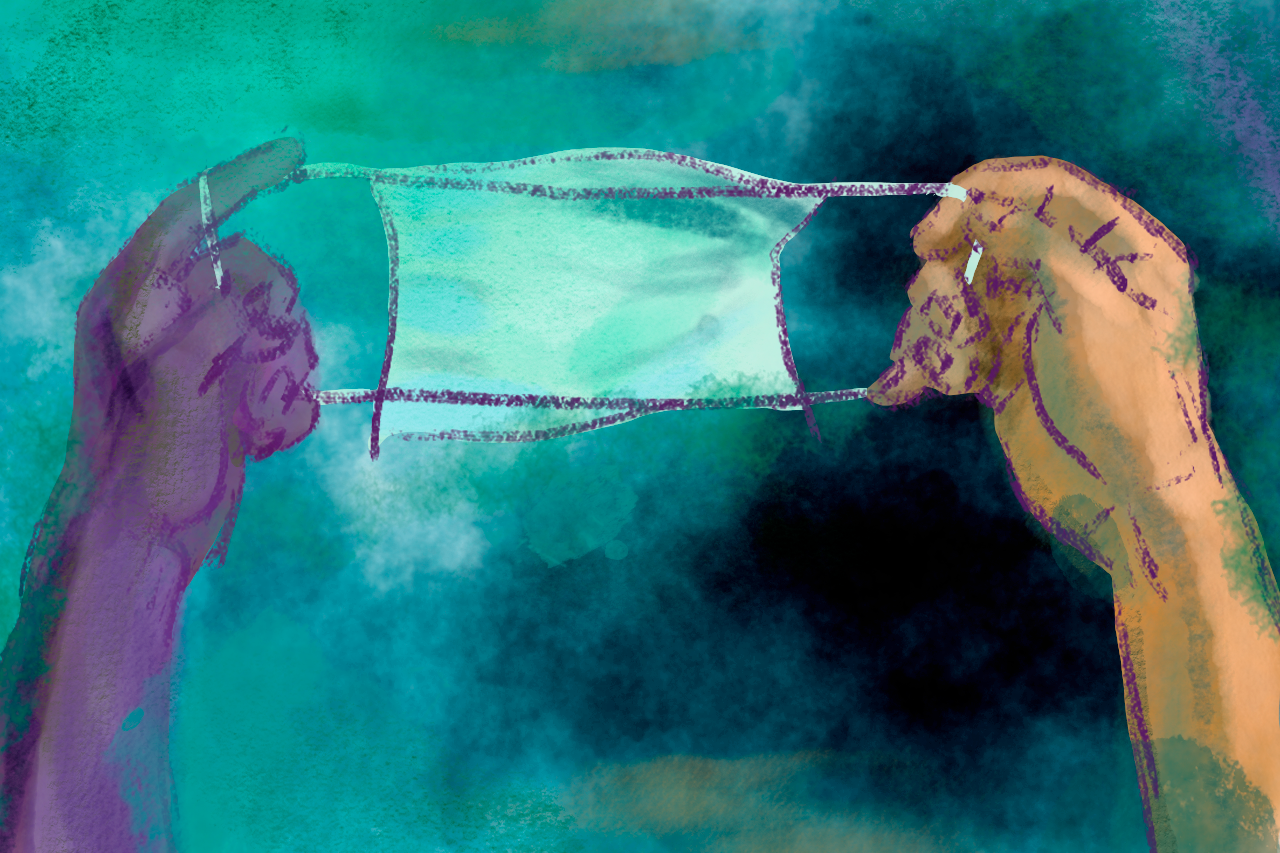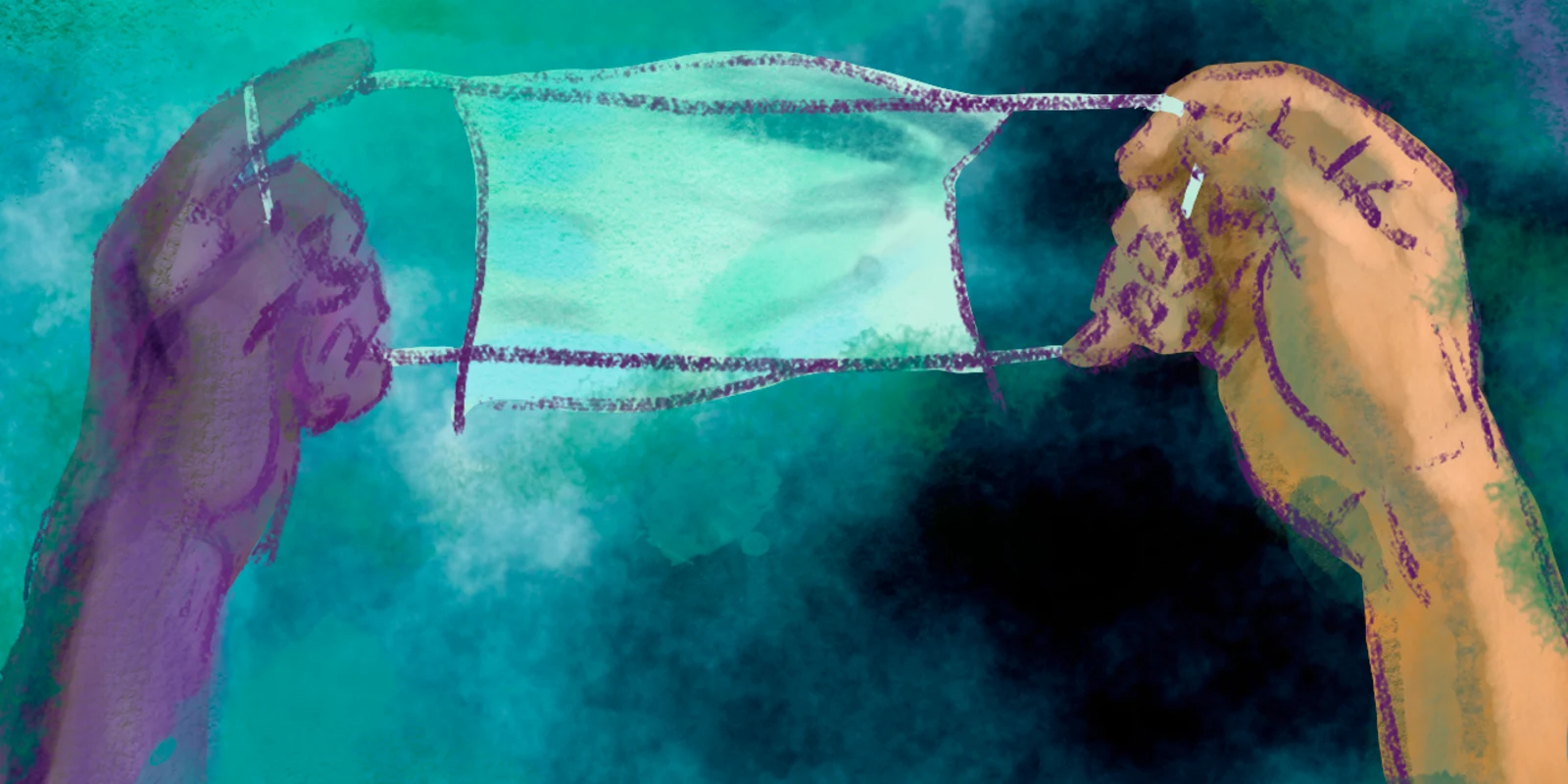
For decades, medical professionals have been viewed with positivity. National polling indicates that most Americans believe doctors are caring, listen to their patients, and “do a good job,” and medicine as a field has long been associated with words like “trust” and “confidence.”
The current pandemic has, if anything, only elevated the already high regard of the American public. In addition to trust and confidence, news outlets are now regularly using new words. Bravery. Courage. Valor and sacrifice. A recent Financial Times article claims that health workers have now replaced soldiers as this generation’s heroes.
Here at Doximity, we are nothing if not in complete agreement: clinicians are heroes (and always have been). But those professionals on the front lines of COVID-19 are a very specific sort of hero; they are not invincible—they are human. Even as they are saving lives, sacrificing personal safety, and literally waging war against a deadly adversary, doctors and nurses are subject to the same vulnerabilities as everyone else.
We asked today’s heroes how they are handling the stress of exposing themselves and their loved ones to COVID-19. Here’s what they said.
At base, most clinicians agree that this pandemic is transformative. A pulmonologist in New Jersey said that caring for COVID-19 patients has involved “the scariest moments I have had since becoming a physician.” A family nurse practitioner in Washington state agreed. “It’s life changing,” she said. “I am currently recovering from COVID19 after being exposed … We are so programmed to take care of patients that when you become the patient and face your own mortality it’s humbling.” A pediatrician in Georgia commented that she is being vigilant but that the experience is nonetheless “going to change all of us!”
Given the sheer number of uncertainties associated with COVID-19, personal safety is a concern. A family medicine doctor shared his experience in private practice. “I was exposed to a patient who walked unannounced into the office with respiratory symptoms.” The patient was later hospitalized and intubated, and though the doctor himself did not ultimately contract the virus, he still felt hesitant about returning to work post-quarantine. “[M]y family and even myself are uneasy about returning to the hospital and the office since we are very short on masks.” Indeed, the nationwide shortage of PPE has made many physicians feel that illness is inevitable. In Arizona, a gastroenterologist and his wife, also a physician, are already mentally preparing to be infected. “[W]e both know at some point we’re getting it,” he said, “[but] we’re doing the best we can to avoid it.” A family medicine physician assistant succinctly echoed the feelings of many: “It is scary! Any patient who walks in is a potential vector.”
While personal safety is, of course, a concern, many clinicians are more worried about their loved ones than themselves. One internist in Boston said, “I brought my parents who are 77 and 79 to live with me, my boy lives between two households and that is already a risk for them[.] I have nightmares of making them sick.” A pulmonologist shared that he told his family “that they would need to keep their distance for a long time,” and a family medicine physician in Washington worried for his aging parents. “Perhaps my biggest personal concern are my parents, both, who are well over 80 and live in King County, Washington, one of the national epicenters of the disease,” he said. A nurse practitioner in New York, now a world epicenter, expressed a similar fear. “I too have parents the same age,” he said. “I'm the oldest child and the closest one to them. Like you, my hope is to not find out what the ED our ICU is like with one of them in it.”
Perhaps most admirable are the concerns clinicians expressed for their colleagues. A cardiologist in Indiana said, “I am especially concerned for the physicians, the nurses and the other healthcare workers on the front lines of the ICUs and ERs who are the true unsung heroes of this pandemic. They are brave and selfless in their service to the sick.” Another cardiologist in New Jersey told us that the stress comes not just from “the potential of exposing and infecting love[d] ones,” but also the potential of infecting staff members. An EM doctor in Alabama noted, “When a 49 year old healthcare worker dies from Covid-19 it gets real very fast.”
Ultimately, clinicians are leaning on their communities and, as one cardiologist put it, looking at this as “another challenge that we together will solve.” One doctor in family practice said, “You know, one benefit to this who[le] CoVid thing is it does bring a crystal clarity to what is really important in one's life.” At Doximity, we could not agree more, and we are so grateful to be a part of a community health care professionals can depend on.
How are you handling the stress of working in medicine during COVID-19? Share your experiences!







